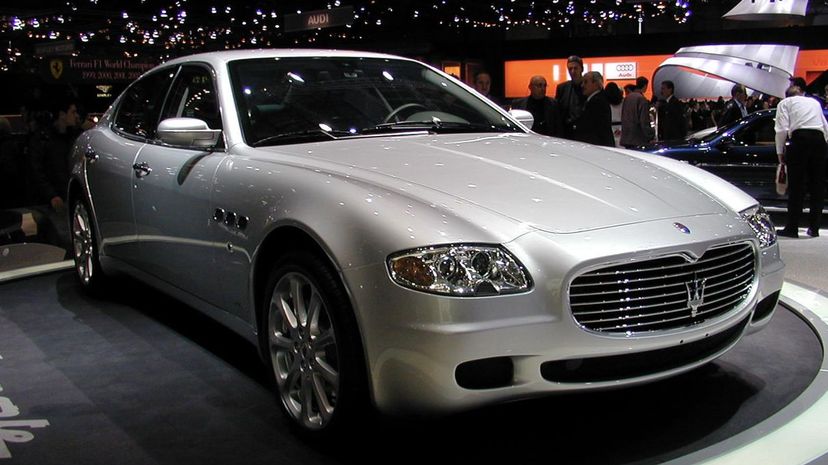
About This Quiz
The evolution of car styling has gone through many changes since the first Model T. With innovation and the needs of drivers constantly changing, automotive designs changed almost yearly as well. Tiny alterations from the previous years' model could make or break a car sales-wise. Because of this, designers had to be cautious not to be over-exuberant with these changes. When Y2K rolled around, and the perpetuation of a complete digital disaster was finally put to rest, car industries ran in exciting and cutting-edge directions with their new designs.
In the '50s car designers were in constant competition to develop the fastest and most technologically advanced car on the market. The 2000s were similar, with automotive manufacturers pioneering in bold directions with not only the technology but also styling. Even the Toyota Camry, which had remained a top seller and relatively unchanged was given a facelift! The introduction of gadgets coupled with plunging A-pillars made it a memorable decade for some unique and sometimes forgotten cool cars.
Are you a master at identifying the cool cars of the '00s? Take this quiz and find out!

Renowned watchmaker Swatch began playing with the creation of these toy-sized automobiles back in the 1980s but didn't gain momentum in the automotive market until a collaboration with Mercedes. The 2002 version had a wheelbase just compact enough that it could fit bumper-first into the depth of a parallel parking spot, allowing two Smart Cars to fit in one spot. Pretty cool if you're in a big city!
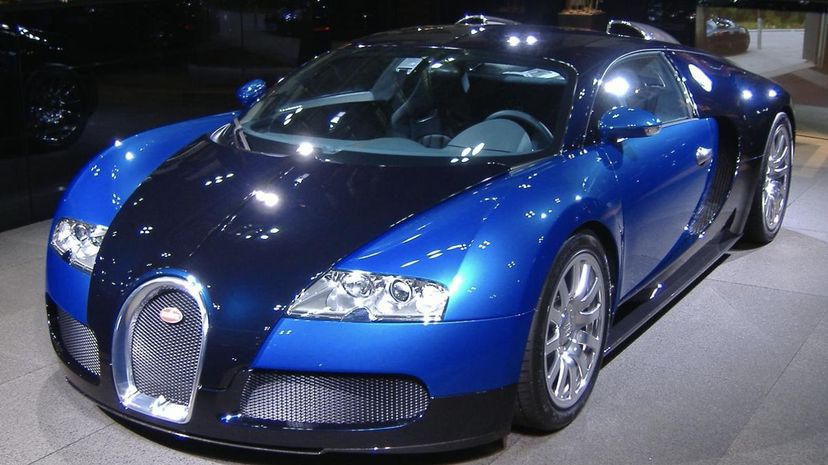
The Veyron was certainly not just another car built from the parts bin. Bugatti took a painstaking effort in developing cutting-edge engineering and design to make their new supercar different from the rest. It was the first car to make preemptive changes to the engine and suspension based on driving styles. This came in extremely handy, seeing as how the little car had over 1000 horsepower.
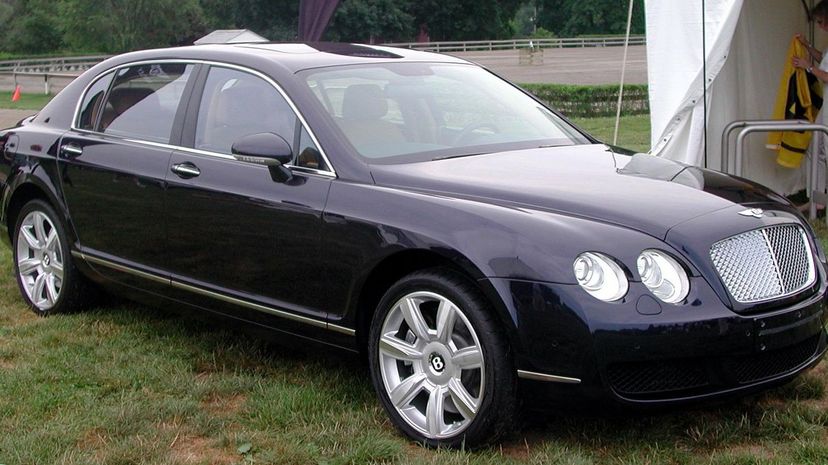
The Bentley Continental GT was built with a massive twin-turbo W-12 engine, making an incredibly quick luxury sedan. All of that luxury leather and high-end styling weighed the car down, and it averaged only 10 mpg during typical city driving. With a price tag in 2005 of over $150,000, it's likely that if you owned one, you didn't worry about the cost of a fill-up.
Advertisement
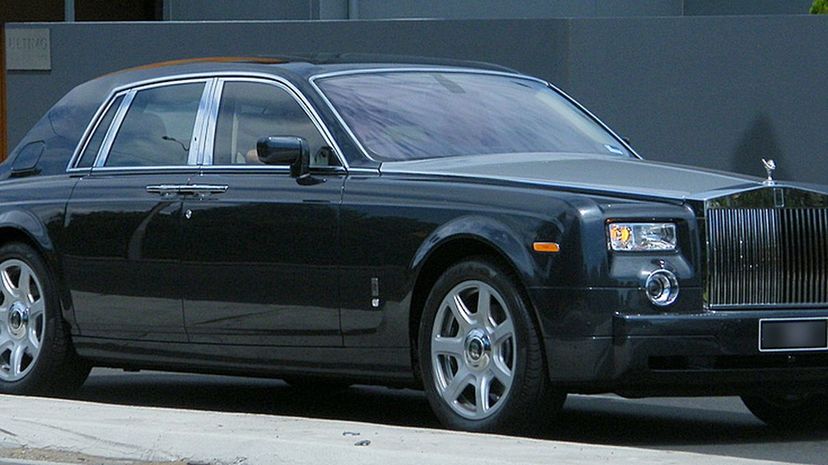
The Rolls-Royce Phantom was introduced to the luxury car circuit after the company's takeover by BMW. Very few hints of BMW could be seen in design nor agility. This didn't matter to the Rolls-Royce-loving crowd, who were offered several dozen Special Edition models throughout production. The car itself could be ordered in one of 44,000 color choices, a feature Rolls-Royce referred to as "design without compromise".
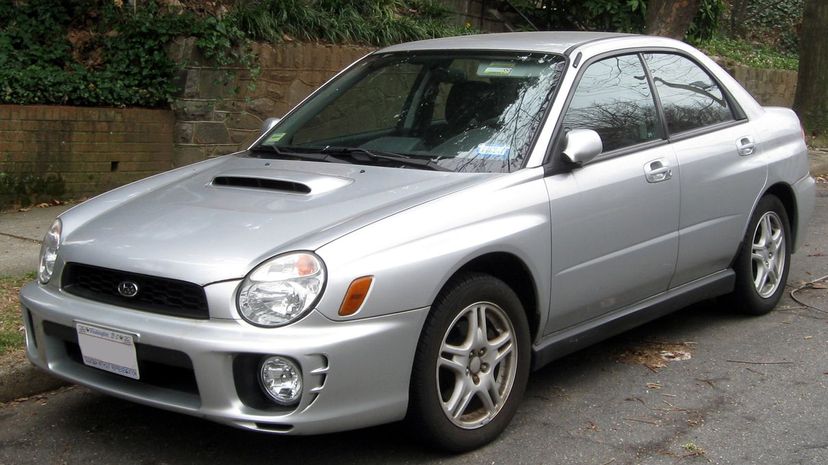
If you look past the almost cartoon-like styling, you'll find the Impreza WRX was a very substantial car. Whoever purchased a new WRX from the dealership would also get a free membership for a year to the Sports Club Association of America. At the same time, the warranty clearly stated that should anything go wrong due to racing, the warranty would be nullified.
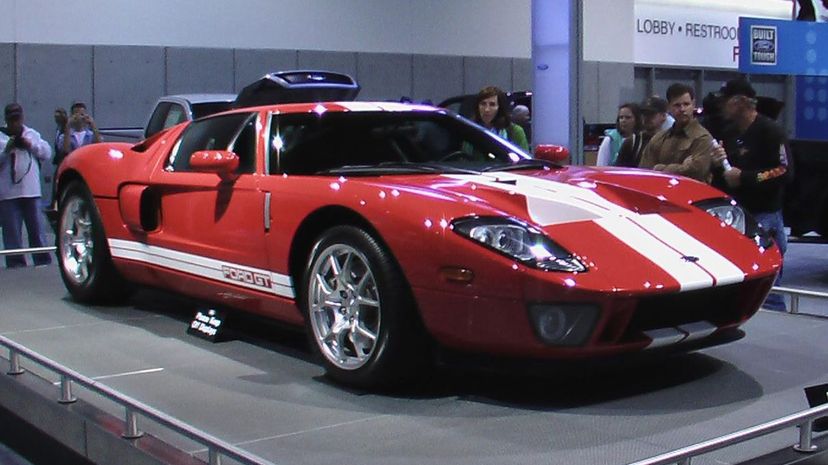
The reintroduced GT40 was a marvel of aerodynamics and exponentially advanced technology-wise over its predecessor in the '60s. By using diffusers and a fully enclosed underbody, Ford was able to alleviate the drag and lift issues that were had with the original car. Lightweight components included aluminum body panels and a carbon fiber hood, which helped keep the car agile but still planted with help from redirecting airflow.
Advertisement
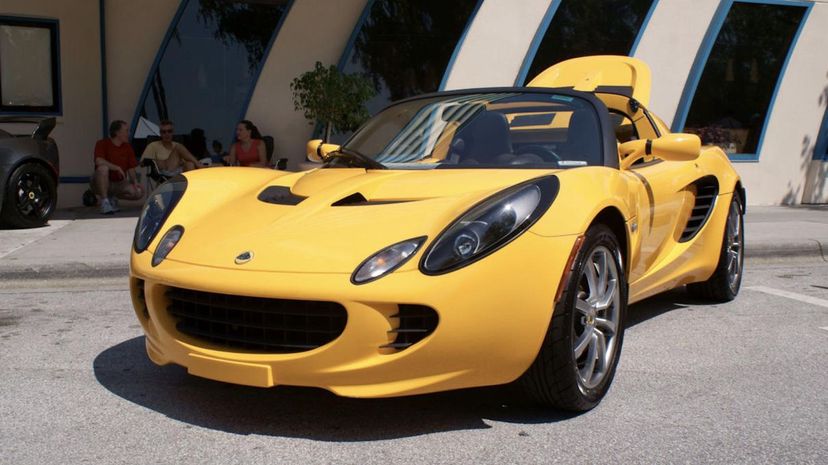
The spritely Lotus Elise stormed the road track circuit as soon as the first one hit the pavement in 2005. With an affordable price tag of $39,000, many were tempted to own one of their own, only to be disappointed by everything except the performance of the car.
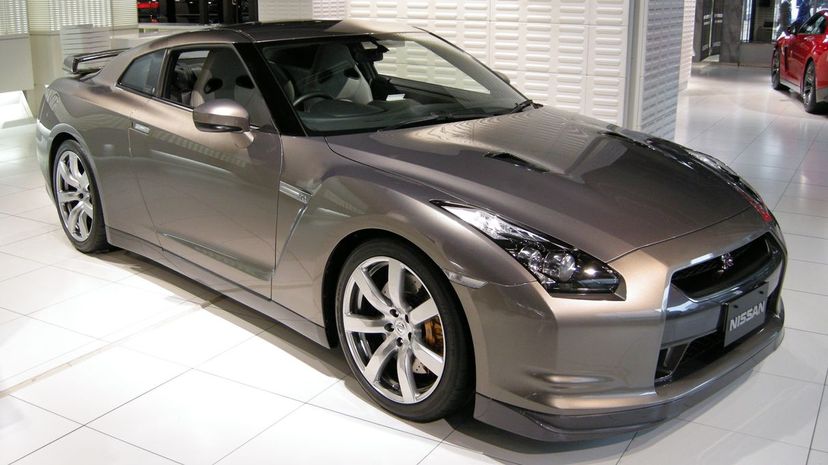
Instead of trying to reinvent the wheel with the Skyline, Nissan decided to forge a new path into the sports car world with the new, independent GT-R. The car itself was meant to be unique. Chief Creative Officer ShirÅ Nakamura stated it was meant to reflect Japanese culture, as opposed to imitating European styling. This was a controversial statement due to European and American designers molding the greenhouse and from the B-pillar back.
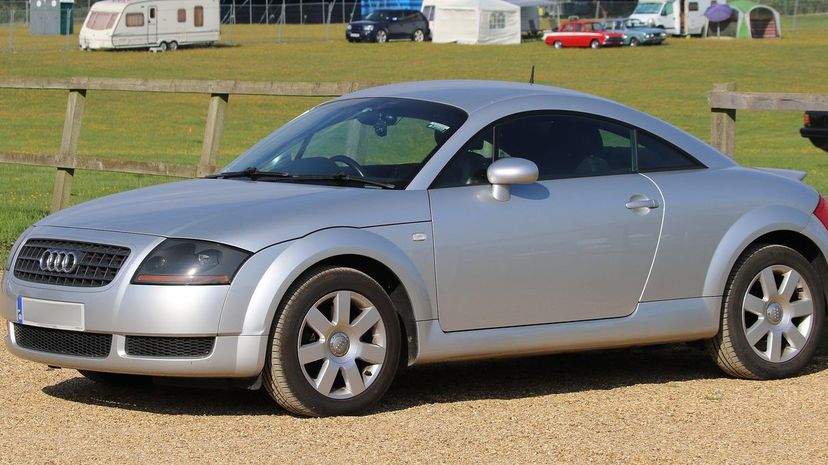
Audi broke the mold when redesigning this wildly successful coupe. The carmaker took the cramped cabin and made it less claustrophobic by slanting the B-pillar, giving it an almost hatch-like look. The most memorable new feature was a speed-activated spoiler that deployed at speed, making the driver feel like James Bond. The spoiler itself was tiny and had little effect on the actual air drag of the car.
Advertisement
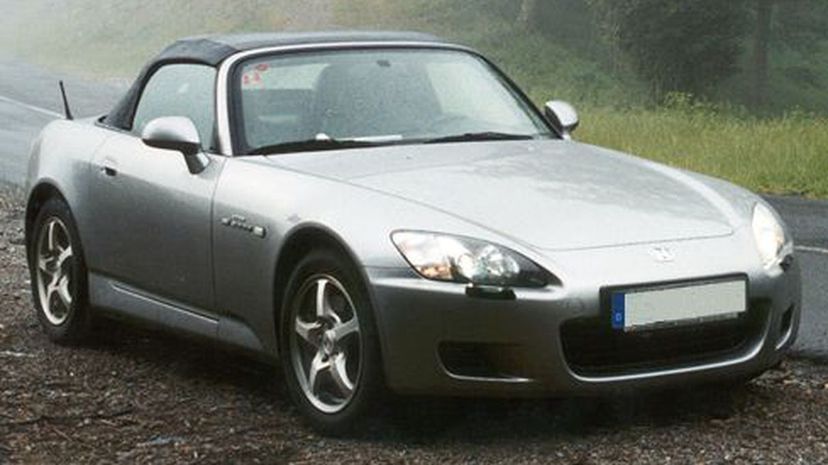
Even though the diminutive car only had a four-cylinder, it offered plenty of performance on the road. Futuristic dash styling implemented digital meters and gave the driver a sense of driving a futuristic car instead of a simple Honda convertible. These features and an almost cult-like fan base have kept the value of the S2000 high, with 19-year-old cars selling for upward of $15,000.
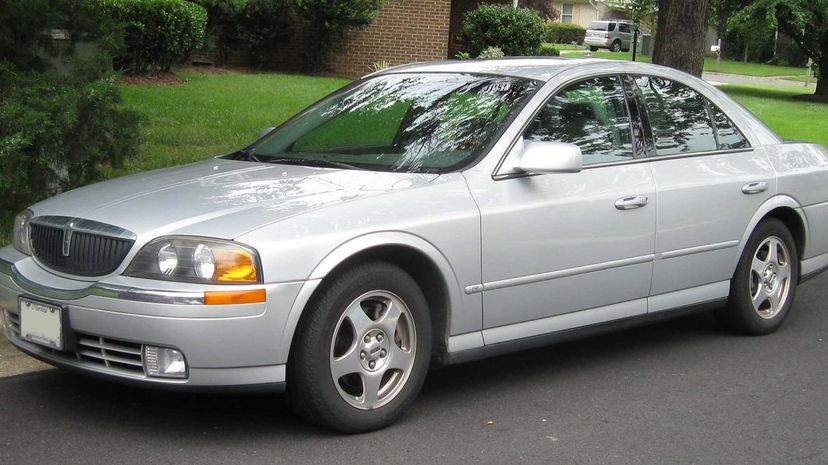
Introduced to the automotive market in 2000, the Lincoln LS was unlike any other Lincoln on the lot. A short hood coupled with sloping A- and B-pillars gave the otherwise boring Lincoln nameplate a new breath of life. The LS was the first Lincoln produced since 1951 to offer a manual transmission which, when coupled with the V8 and independent wishbone suspension, made it more of a sports car than a grocery-getter.
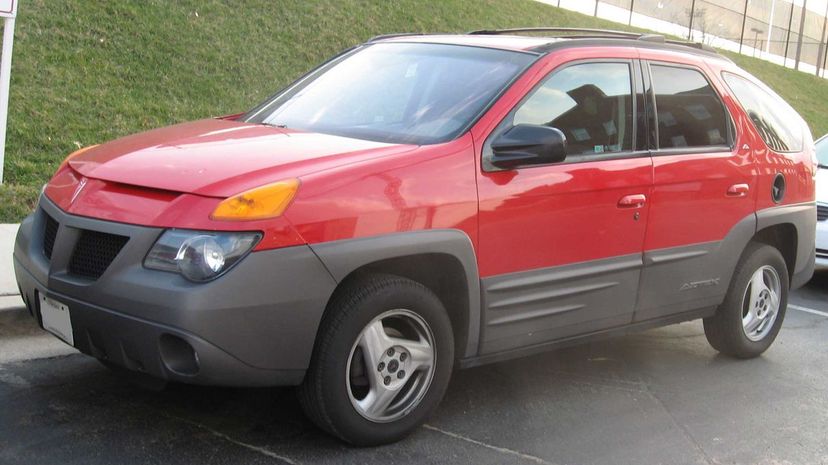
What the Pontiac Aztek lacked in the styling department it more than made up for in the accessory department. The Aztek was a mixture of car, truck and recreational vehicle all rolled into one ugly package. In the cargo area, one could haul an entire sheet of plywood comfortably. In the hatch area, rear-mounted radio controls and cup holders made the Aztek the perfect tailgating vehicle. If you purchased the tent addition, your Aztek could transform into a camper. Pretty cool, don't you think?
Advertisement
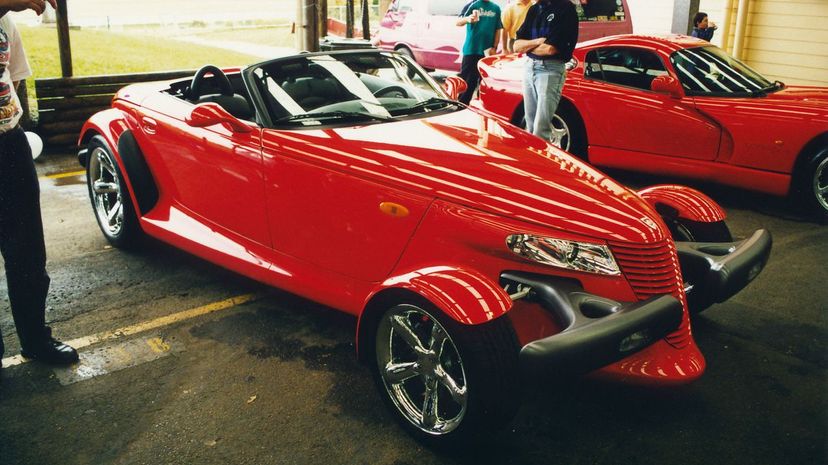
The Plymouth Prowler was designed to pay homage to the hot rods of the '30s. The design turned out to be quite impractical, and many people found it cumbersome to own and operate due to almost no cargo space. To appease this displeasure, Chrysler offered a solution by providing a trailer option. By installing a hitch on your Prowler and towing anything, you would void the warranty. Sound familiar?
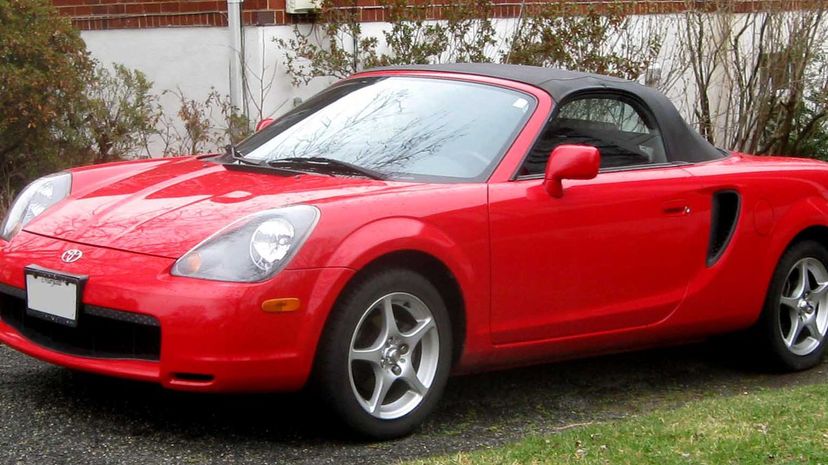
This little Toyota offered a whole lot in a tiny package. With a reasonable price tag just over $20,000 and decent fuel mileage, you got a lot of bang for your buck with this unexpected sports car. Although the engine was a meager 1.8 liter, the car seemed weightless around corners and off the line at a stoplight.
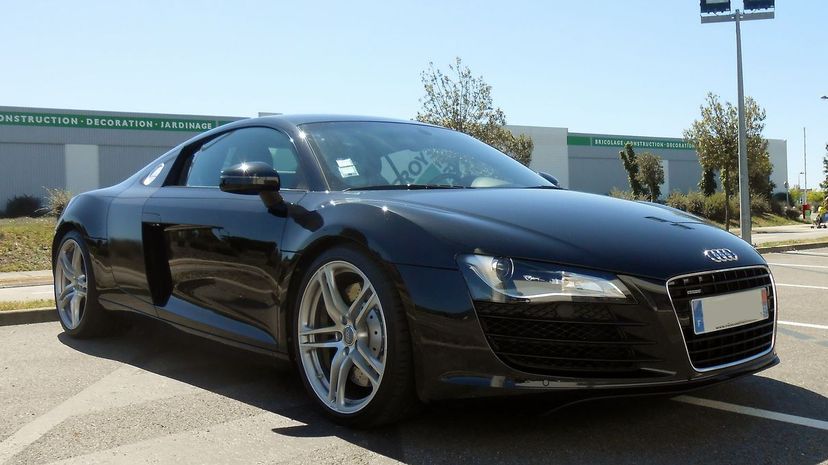
The mid-engine R8 was ridiculously fast and able to go 0-60 in just 4.4 seconds. This wasn't that impressive in an automotive world saturated with sports cars, some cheaper and quicker. What made the R8 special was a magnetic suspension supporting all four wheels that were being delivered power from the V8. The car went where it was steered and was a dynamo at the 24 Hours of Le Mans with six-time winner Jack Ickx stating that it was "the best handling road car today."
Advertisement
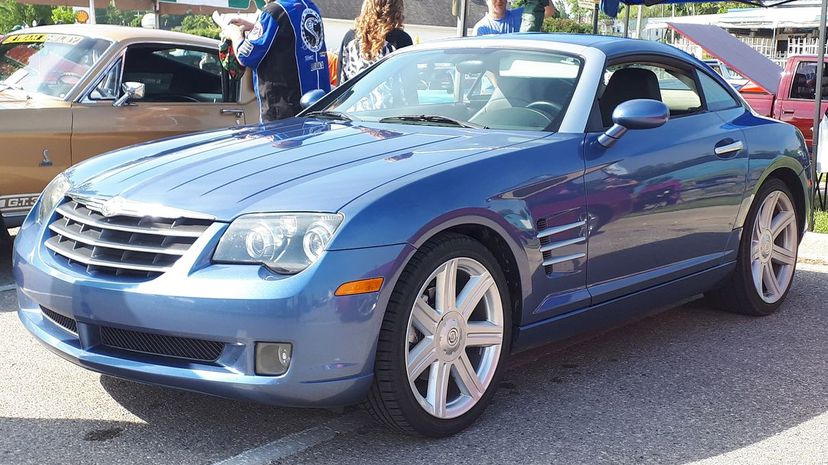
If this car looks a little confused, you're on to something! The little convertible was sold by Chrysler, built by the German company Karmann, and based on a Mercedes-Benz platform. A staggered wheel setup and lack of proper spare tire made many people turn the other way and not give this German-at-heart sports car a second look.
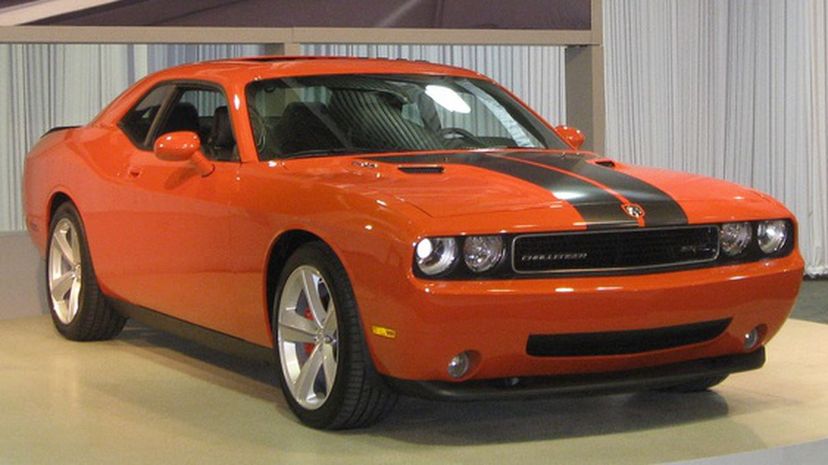
With retro-modernistic styling, the anticipation of the throwback Challenger was palpable. Dodge took styling cues from the first generation Challenger such as the abbreviated B-pillar, independent lens for high and low beams and available tweed-like cloth for the interior. Along with the Charger, which was reintroduced the year before and the Dart that was still under development, Dodge was able to reclaim some fans it had lost over the stylistic funk in the '80s and '90s.
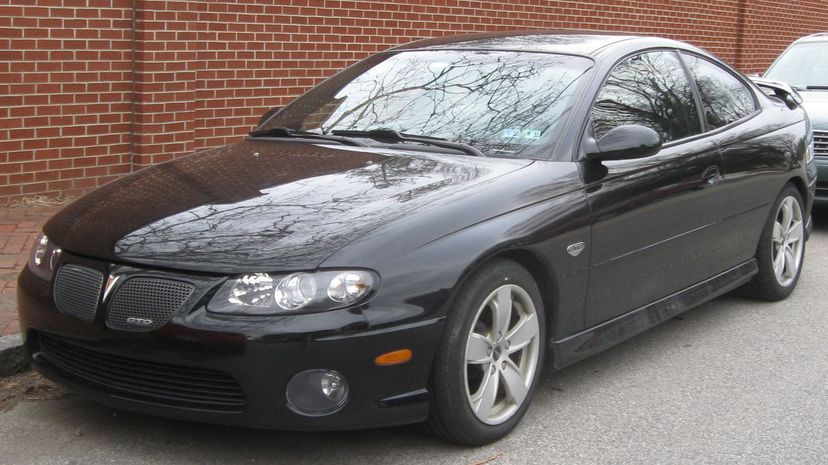
Unlike Ford did with the reintroduction of the GT40, General Motors took a different direction with the GTO. GM introduced the new GTO using the Australian-made Holden Commodore, hoping to breathe some life into a struggling Pontiac brand. The target price was slated to be around $25,000, which was a reasonable price tag for all the car had to offer.
Advertisement
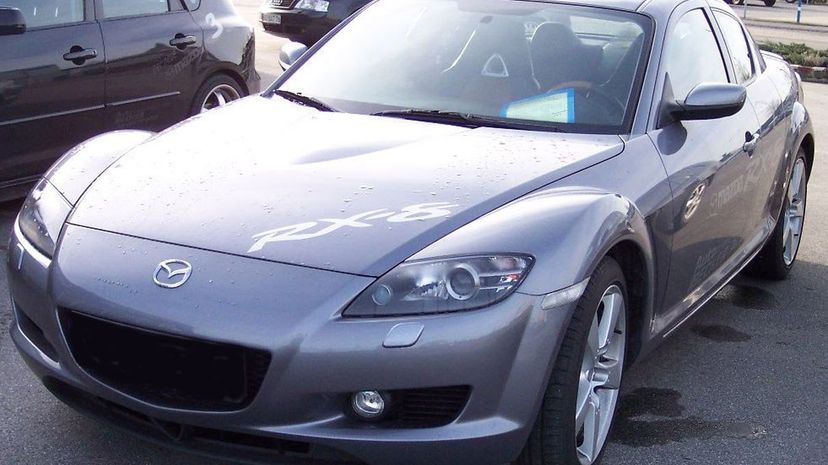
The RX-8 was full of surprises! From the unconventional rotary engine to the hidden back doors, the car was a tremendous hit with the JDM crowd. For those who couldn't justify a car with only two seats and a tiny trunk like the Miata, they found respite in the design of the RX-8. Instead of just slapping an extra set of doors on and calling it a day, designers took their time in styling. Lack of B-pillar and rear door handles placed in the door jamb didn't detract from the overall coupe styling.
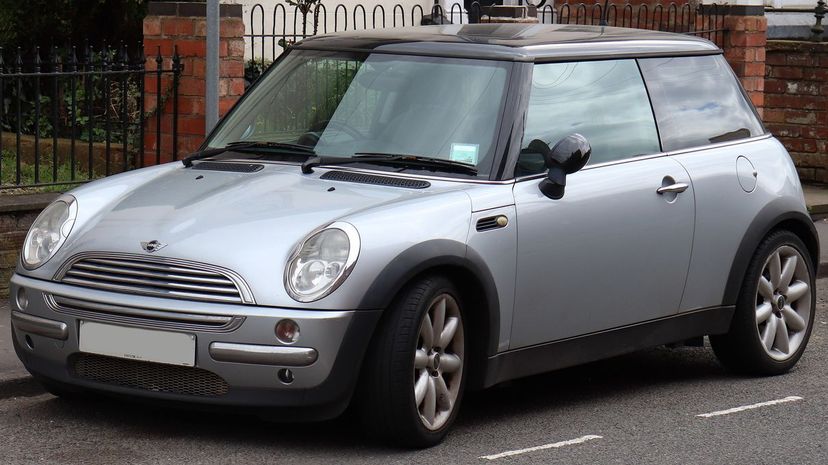
The reintroduction of the Mini was huge, however, the agile little cars started off with a rather bad reputation of being terribly unreliable. Once the reliability issues were solved and popularity increased, more variations on the car were introduced. Performance packages from John Cooper Mini Work transformed this docile little compact car to an asphalt-ripping beast.
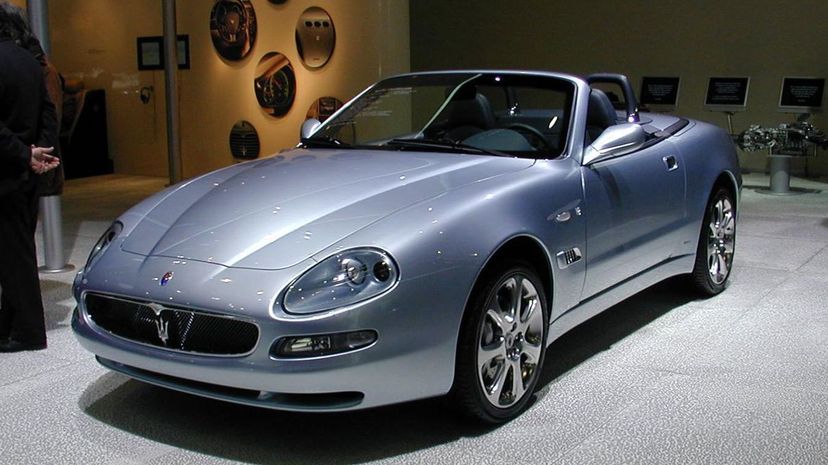
Almost everyone has heard the saying "like a wolf in sheep's clothing," but the MC12 was actually like a wolf in a rabid wolf's clothing. Built upon an Enzo Ferrari shell, stylistic and mechanical changes were made to make it the ultimate street-legal race car. Many automotive journalists scoffed at the car's impracticality due to no trunk nor rear window. Only 50 street-legal MC12s were sold, and were equipped with a massive V12 engine.
Advertisement
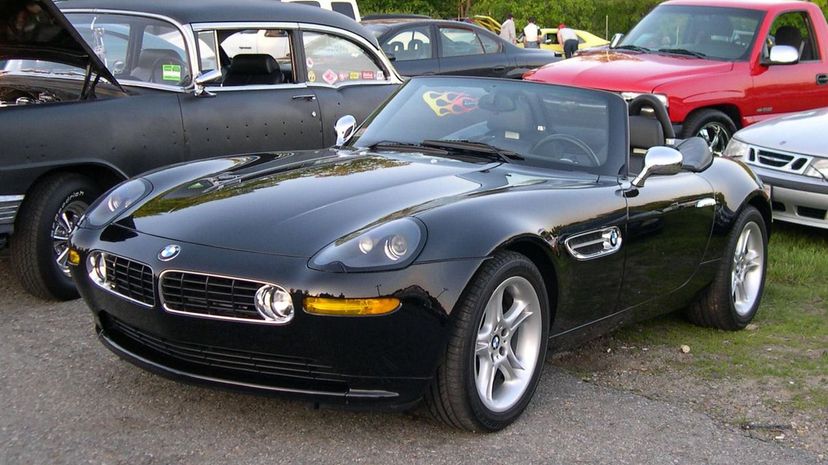
Controversial BMW stylist Chris Bangle helped design this radical deviation from the stately yet predictable cars BMW had been producing. His "Bangle Butt" changed the way many BMWs looked, and was hated by many. One highly lauded critic described his styling as looking as if the cars he designed were attacked with a machete. The Z8, in particular, had one-of-a-kind doors that retracted into the door well, something yet to be replicated.
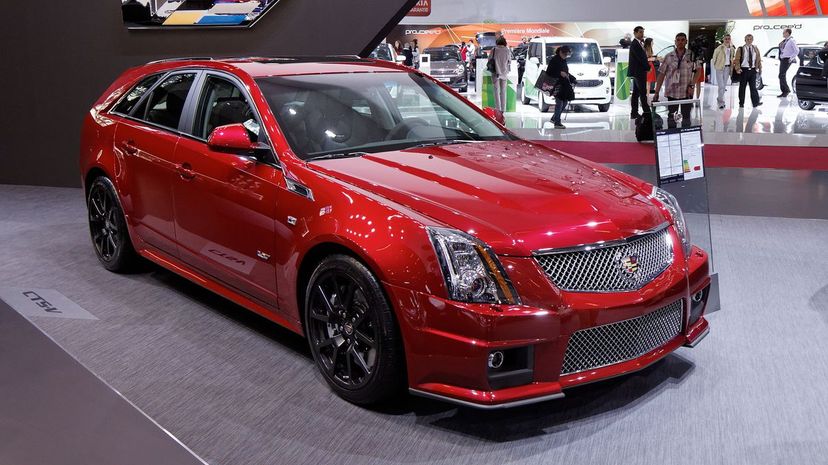
The CTS-V was basically a Corvette, but stretched out into a luxurious four-door sedan. There were only around 4,000 of these made and they only came in black or silver. The price tag at the time was a viable rival to other mostly European 400+ horsepower luxury sedans.
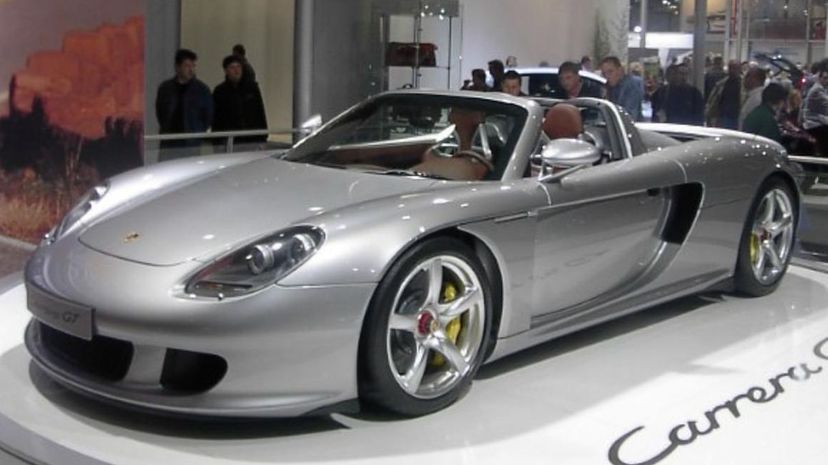
Although the engine wasn't technically in the rear like early 911s, it was at least positioned at the right end of the car, which Porsche purists loved. The Carerra was built as a driver's car, offered only in five different colors and no option for an automatic transmission. With the weight of the engine perched above the rear-drive axle, the car was stunningly quick and is still on several lists of the fastest cars of all time.
Advertisement
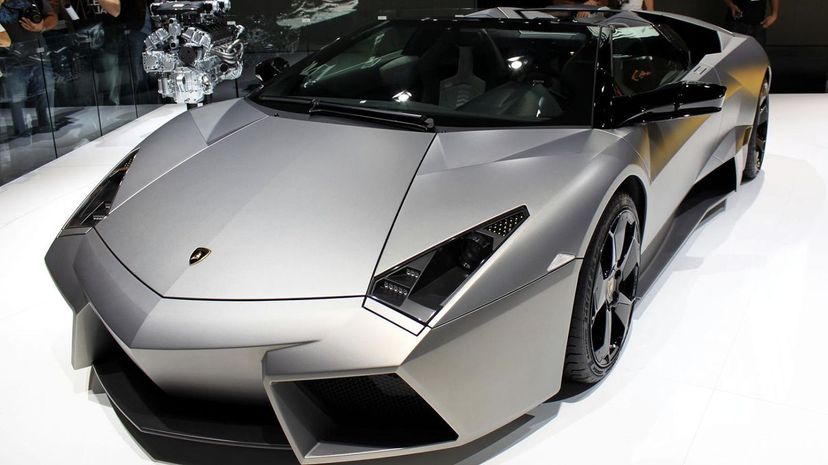
This incredibly angular Lamborghini was a Murciélago under the skin. However, the exterior was brand new. Designers acquired inspiration from aerospace and created this body with lines sharp enough to cut your finger on. Interestingly enough, the translation of the Reventón can be taken in many ways depending on the context. When used as a noun, it could be anything from a flat tire to a big party.
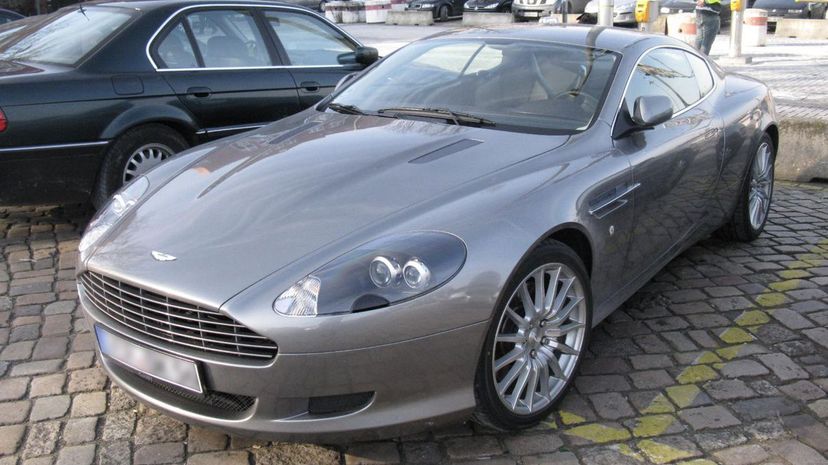
The DB9 exuded fashionable styling, sporty handling and won the hearts of many automotive journalists during the auto show season. The complimentary appearance was backed up with impeccable performance and handling. If the car looks familiar, it might be because legendary designer Ian Callum helped to create the distinctive DB9 face. Similar faces can be seen on some of his other work like the Jaguar F-type and 2013 Ford Fusion.
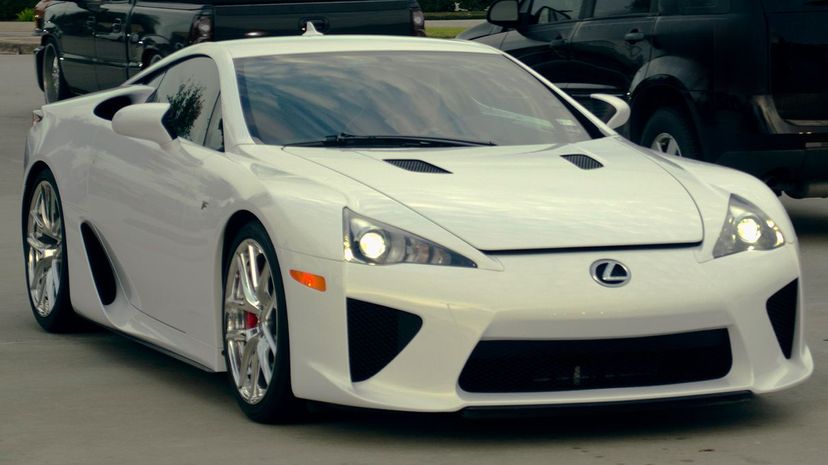
Lexus teased the automotive world with the LFA by parading concepts at various auto shows around the world beginning in 2005. The LFA didn't become available to the public until 2009, when it was announced only 500 were to be made. Innovative implementation of carbon fiber for body panels created an astonishingly lightweight body.
Advertisement
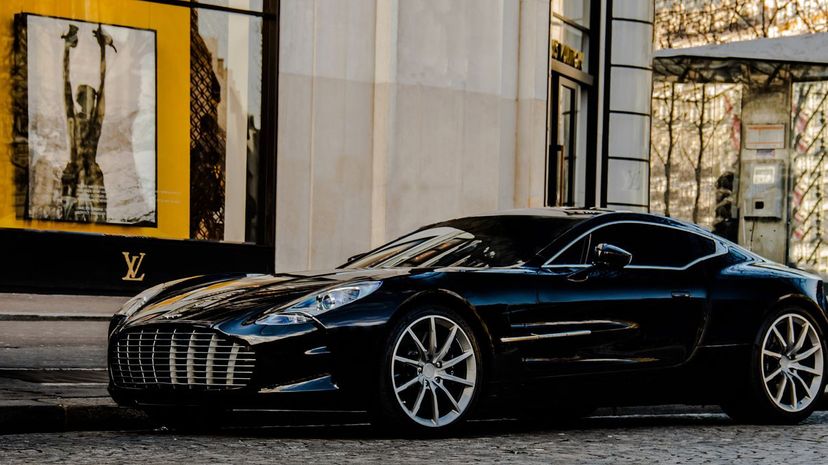
Aston Martin played a rather coy game with fans when it brought the One-77 to the Geneva Auto Show in 2008. The preliminary model was almost totally obscured by a gray pin-striped fabric, giving the onlooker only a slight glance of the front right side. The fabric stretched over the car clung to every stylistic line of the car, but it would be an entire year before onlookers could see the whole ensemble.
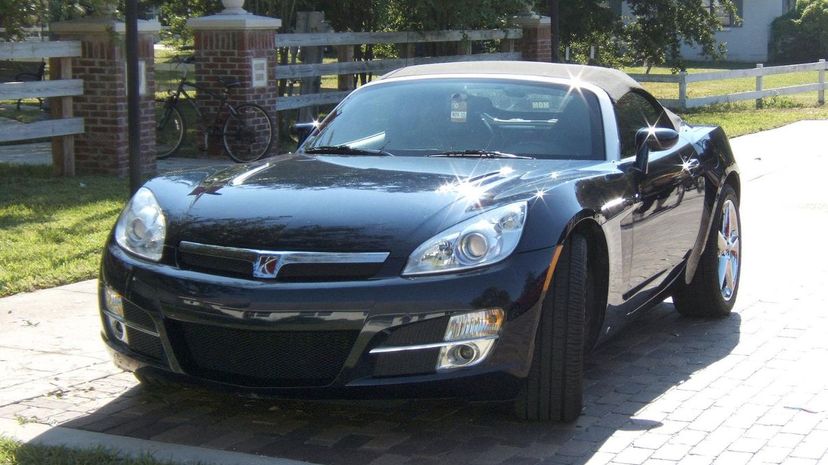
Saturn had become known for bland and forgettable cars for the majority of its existence, except for the Sky. The Sky Red Line was a performance edition of the car, equipped with a turbo 2 liter that would do 0-60 in just over five seconds. Perhaps the most famous Saturn Sky is a highly modified drift car driven by Darren McNamara equipped with a V8 that puts out 790hp.
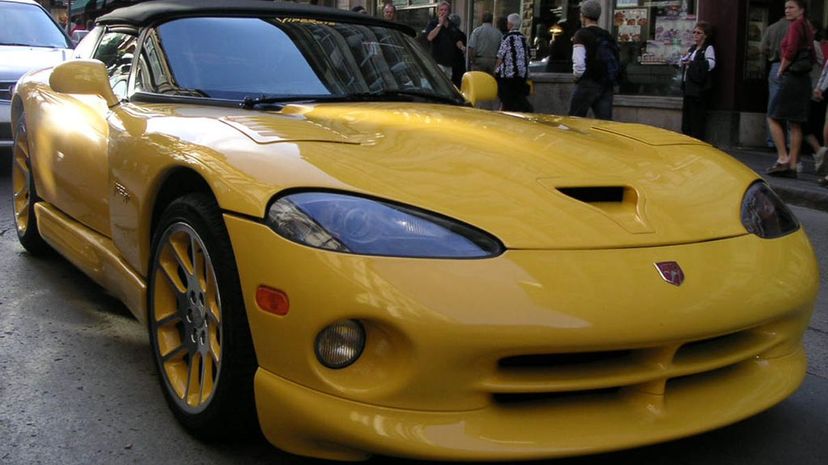
Surprising to some, the Dodge Viper debuted way back in 1989 at the American Auto Show. Memorable styling like the sweeping hood and tiny trunk lid made the car a recipe for styling success. The memorable roadster remained essentially unchanged aside from a few tweaks until 2002, then went through two different alterations before it was announced in 2009 that the Viper would cease production. This turned out to be temporary, and the Fiat/Chrysler merger brought a new Italian Viper, but it was short-lived.
Advertisement
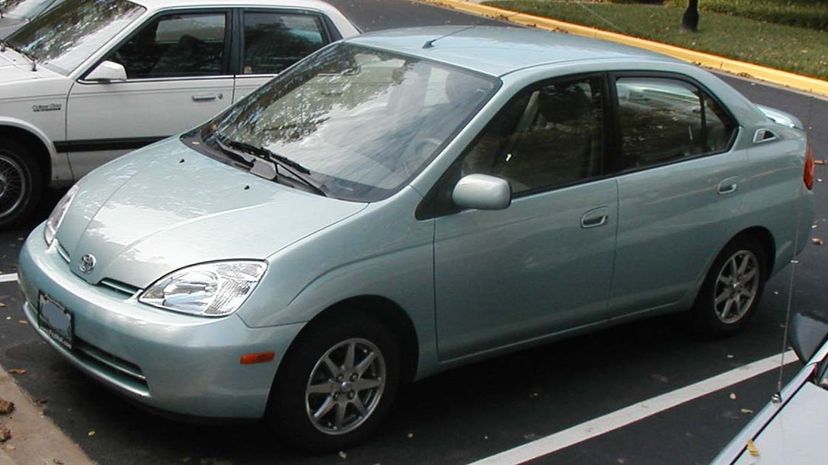
The Prius was initially released in Japan in 1997 under a sort of testing phase before being released to the world population. The initial reception of the Prius in America wasn't the greatest. Some saw the Prius as being dangerous, with a 0-60 time of over 13 seconds. In addition to slow acceleration, a replacement battery unit costs the owner almost $5,000 with parts and labor. Many were junked instead of repaired. Toyota got the little idiosyncracies fixed and the Prius overtook the wildly popular Ford Explorer in sales figures.
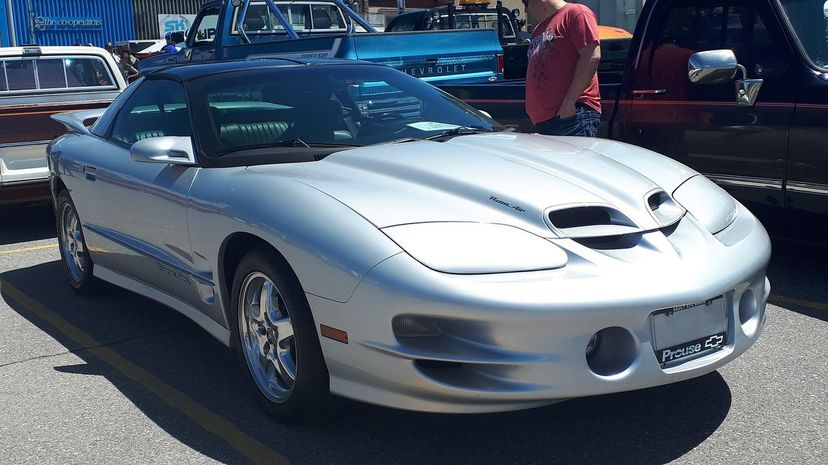
Instead of being squeezed out of an arduous tube in the last years of production, GM decided to go out with a big bang. Many Trans-Am models were built with parts destined for Corvettes, and luxury options were included in the base models such as power windows and antennae. In one last grand hurrah, a Pontiac Firebird was decorated up in full NASCAR livery and used as the pace car for the Daytona 500 in 2002.

This awkward car got nothing but mixed reviews, with Car and Driver calling it outright ugly. This didn't matter to the BMW crowd, and those who loved the car based on more than looks alone developed a vehement passion for their little cars. Events such as Dorkfest and Schuch Syndicate (a play on the "clown shoe" title) are still held and attract hundreds of these odd-shaped cars every year.
Advertisement
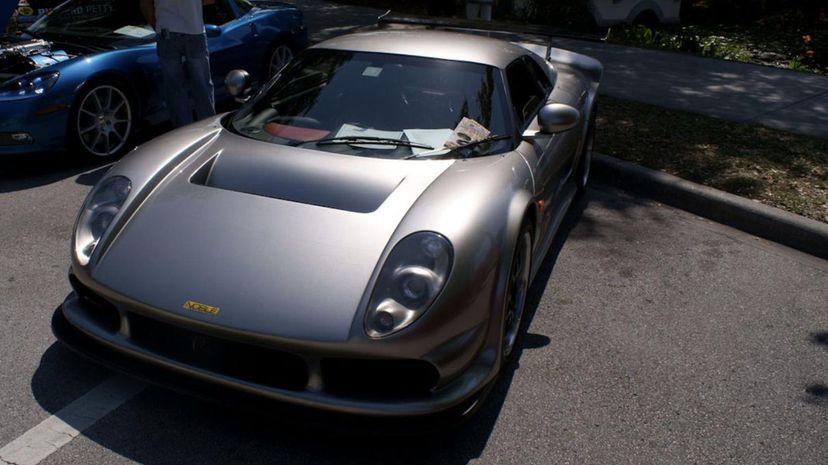
Only 220 Noble GTO-3Rs were brought to America and were wildly popular because they offered a street-legal mid-engine sports car. Powered by a Ford V6, it was appallingly quick but still agile. The sleek space-age style was like none other at the time, and Nobel still produces exotic sports cars by hand for the discerning driver to this day.
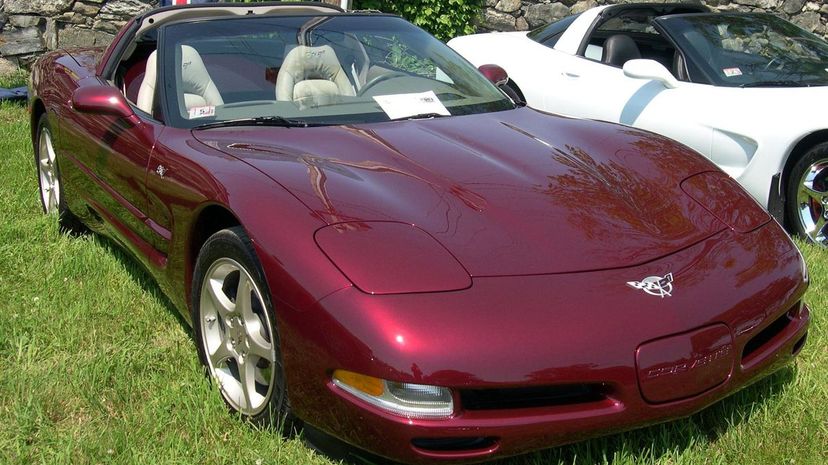
2004 marked the end of the road for the fifth generation and even more depressingly the end of the pop up headlights seen on many sports cars. 34,064 Corvettes were built in 2004, including the Z06, which featured a carbon fiber hood and embroidered headrests. If you were to go all out on the commemorative edition, you would have spent an extra $3,7000 for "commemorative" red paint and 17" alloy wheels.
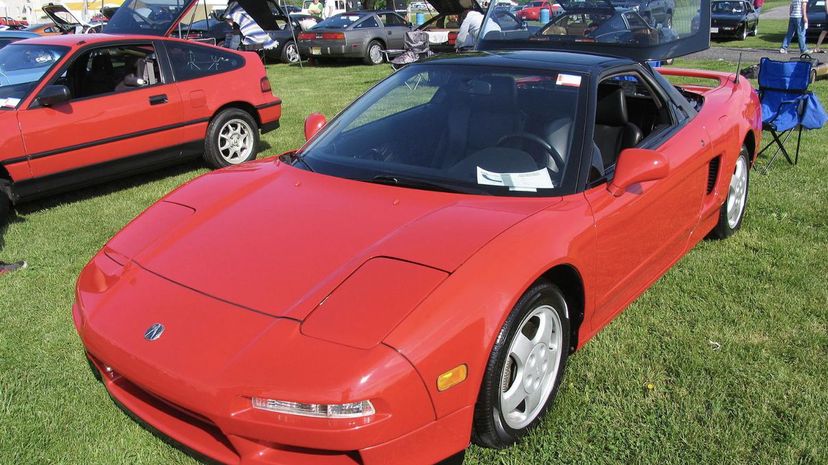
The Acura booth was in desperate need of something exciting at the 2002 Detroit Auto Show, and the NSX did the trick. With a redesigned front end and implementation of more modernistic taillights, the car was a showstopper. There was a hiatus in NSX production between '05 and '16, but when it was reintroduced it was more radical and exotic than ever with a price tag almost double that of the 2002 model.
Advertisement
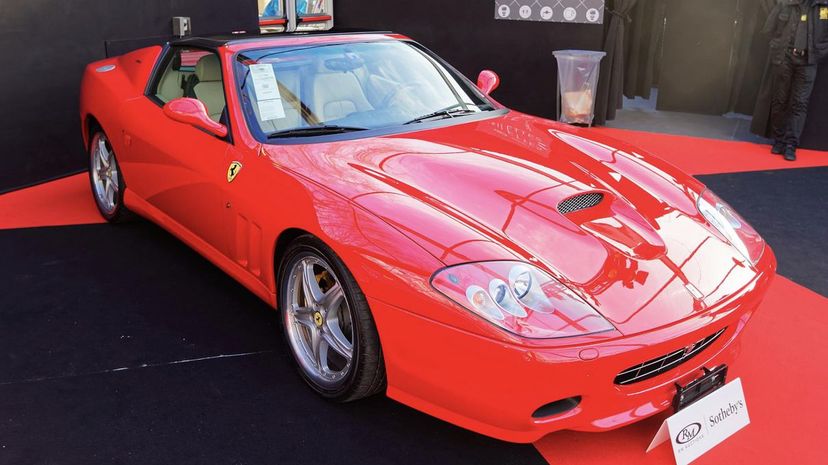
Unlike every other convertible on the market, Ferrari re-engineered the way convertible tops work. Instead of retracting into a stowaway compartment, which adds weight and takes up space, the entire roof of the Superamerica pivots almost like a door on hinges and goes from being horizontal over the driver's head to a position placed evenly across the top of the trunk.
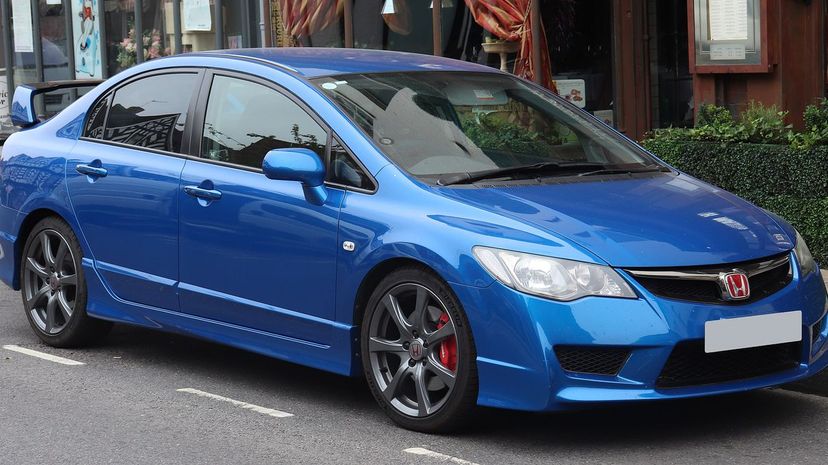
The Honda Civic can be confusing! There are the extreme base models that can barely get out of their own way, and then you've got the Si. When the Si wasn't gutsy enough, Honda released the Type R. Everything was upgraded including suspension, brakes and an aerodynamic package. Before you scoff at a Civic, know that the Type R of '08 could put out 221 horsepower! Not bad for a little Civic.
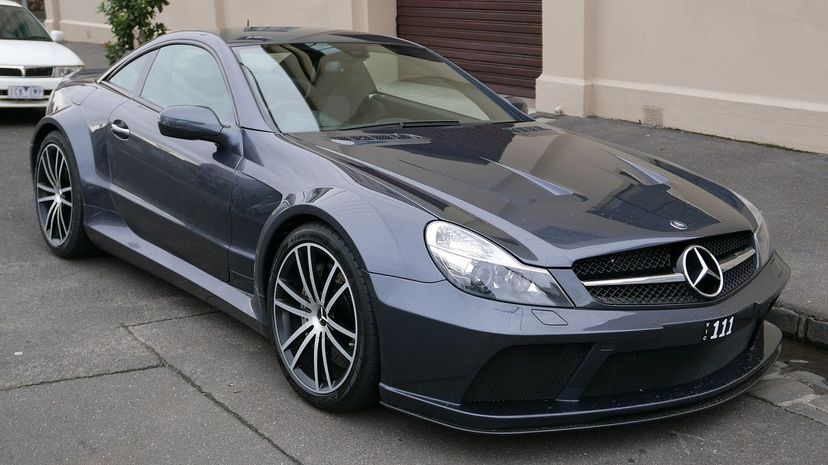
The shocking sticker price culled the casual fans from the serious thrill-seeking drivers. Everything about the car was distinctive, right down to the rapidly stowing convertible top, which converted this coupe from a track-attacking monster to an enjoyable weekend cruiser. Only 350 of the 660 horsepower cars were made, and are still bringing over $200,000 on the used car market.
Advertisement
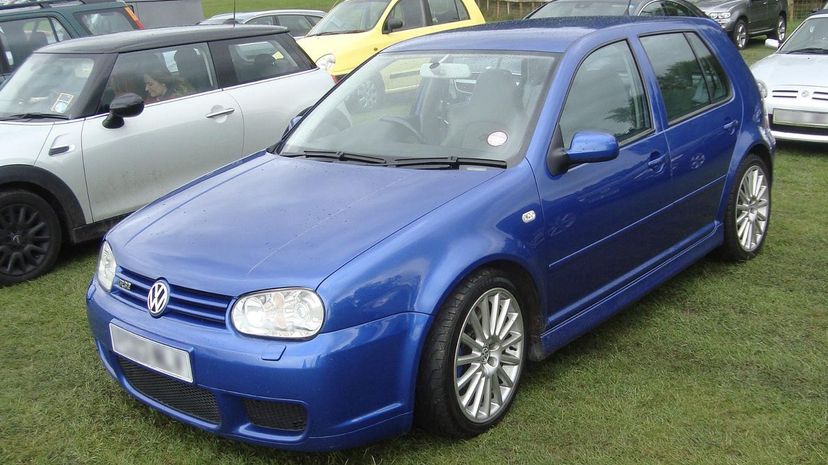
Aside from the sporty red color offered, the R32 had the very first dual-clutch transmission available, which provided silky smooth and rapid shifting. The benefits of this innovation included improved fuel economy, however, the transmission service and fluid maintenance were costly. The R32 was intended to vie for popularity with the WRX and had a top speed of 153 mph, making it extremely competitive.